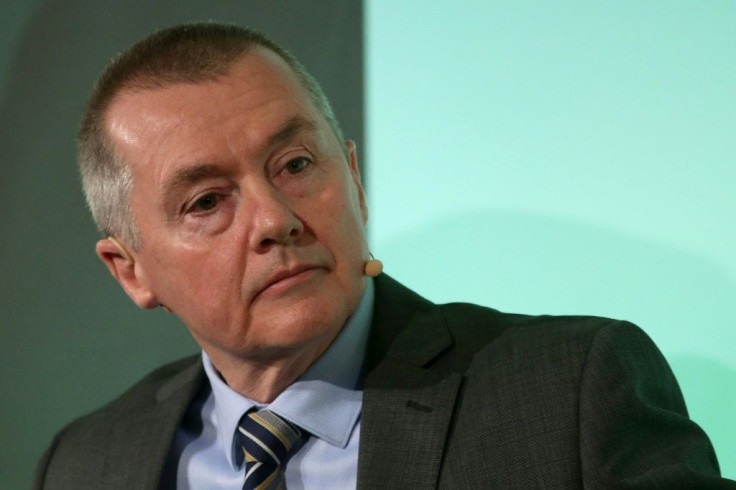British Airways Owner IAG Taps U.K. Government Funding, CEO Warns Of More Restructuring

KEY POINTS
- IAG tapped $371 million of loans backed by the U.K. government
- British Airways has already announced it plans to cut 12,000 jobs
- Walsh does not expect passenger demand to recover until 2023 at the earliest
International Airlines Group, or IAG, which owns British Airways, Iberia and Aer Lingus, has tapped 300 million pounds ($371 million) of loans backed by the U.K. government to pump up its liquidity as it continues to deal with the catastrophic effects of the Covid-19 pandemic.
IAG accessed the funds from the U.K. government’s Coronavirus Corporate Finance Facility during the second week of April.
Last week, IAG’s Spanish carriers Iberia and Vueling received 1 billion euros ($1.1 billion) in loans backed by the Madrid government.
IAG Chief Executive Officer Willie Walsh warned that the company will have to further restructure and streamline its operations. British Airways has already announced it plans to cut 12,000 jobs –about 30% of its workforce -- and may shut down its secondary hub at Gatwick airport, south of London. Walsh’s statement suggests layoffs are imminent at IAG’s other airlines.
IAG posted an operating loss of about $579 million in the first quarter.
IAG also said it expects to take delivery of only new 75 planes over the next three years, about one-half of the 143 it previously planned on buying. IAG may also consider an early retirement of inefficient four-engined Boeing Co. 747s and Airbus SE A340s.
“We do not expect passenger demand to recover to the level of 2019 before 2023 at the earliest,” Walsh said. “This means group-wide restructuring is essential in order to get through the crisis and preserve an adequate level of liquidity... Balance sheets are going to be very different when we come out of this. Structural reform is going to be required on an industry basis and not just on an individual airline basis.”
Walsh originally claimed that IAG was not seeking state-funded bailouts and had criticized government plans to save low-cost British regional carrier Flybe (which has since collapsed).
“What I’ve always been opposed to is where inefficient failing companies receive bailouts from governments,” he said Thursday. “Where airlines have been unwilling or unable to reform, they should not be bailed out by receiving free money… I’ve been very clear that state aid which is made on a general basis, if it’s applicable to us and we can avail of it ... then we will do so.”
Daniel Roeska, a senior analyst at Sanford C. Bernstein, said IAG has a “very strong liquidity position” (about $10.8 billion in liquidity at the end of April) and should be able to “outlast many peers” during the prolonged slump in air travel demand.
Despite the ongoing turmoil, IAG is still considering an acquisition of Spanish airline Air Europa for $1.1 billion.
Walsh said the planned purchase makes strategic sense and noted the agreement includes a price adjustment mechanism which could lower the cost of the merger.
“There’s still quite a bit of work to do on the competition front before we need to address whether the [Air Europa] deal proceeds or not,” he said,
IAG also said it expects to start resuming flights in July, albeit at 50% less passenger capacity – and dependent upon the lifting of travel restrictions.
Walsh specified the airline group plans to operate about 1,000 daily flights between July and September.
Walsh further said he saw no need for Heathrow Airport in London to build a third runway.
“There isn’t going to be a third runway. If they want to build a third runway they have to acquire Waterside, the British Airways headquarters. I’ll sell it to them tomorrow ... but I don’t expect they’ll be rushing to do a deal,” he said
IAG also said it cut its weekly operating costs to 200 million euros ($217 million) from 440 million ($477 million) euros since the pandemic.
“We read this [cost reduction] as more positive than negative in terms of how [IAG] management are handling the current crisis, albeit with huge uncertainty still overhanging both the group and the industry as a whole,” said Mark Simpson, an analyst at Goodbody Stockbrokers.
© Copyright IBTimes 2025. All rights reserved.





















